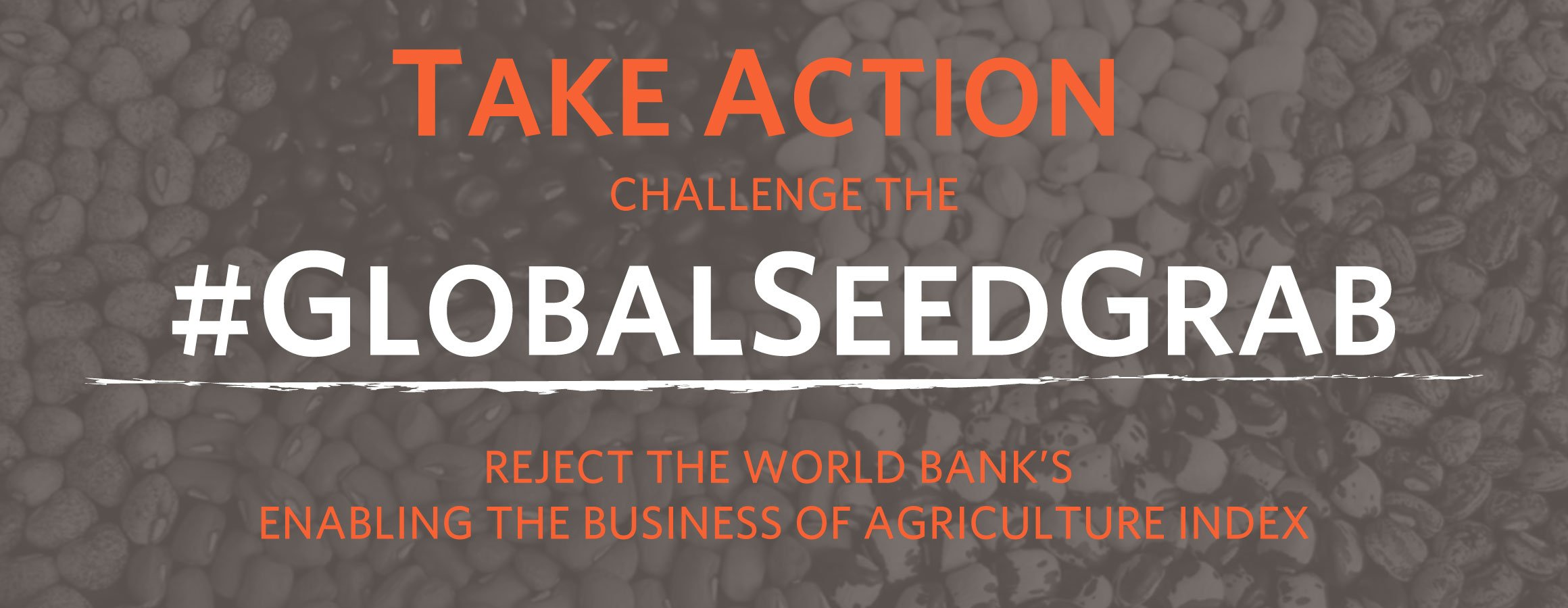A few weeks ago, we shared about the World Bank’s dangerous Enabling the Business of Agriculture (EBA) project and the particular threats it poses to African agriculture (read our analysis here). Now is the time to increase the pressure on the Bank and its donors.
This joint advocacy led by the Oakland Institute has forced the World Bank to recognize the importance and value of farmer-managed seed systems! In the 2017 EBA report released this week, the Bank incorporated some of the language from the letters word-for-word into the seed section (see attached image for an example of the specific language copied from the letter).
However, beyond this recognition, the Bank is still running the EBA and promoting the pro-corporate regulations we have denounced. Now, everyone can email the World Bank President Jim Yong Kim and EBA donors directly to request the withdrawal of this harmful project.
As we highlighted in our last blog, the seed indicators are part of a regime of power that seek to legitimatize a vision of agro-industrial production, commercialization, and privatization. For farmers, this means creating markets along the supply chain to displace farmer-managed seed systems and agroecological farming. The Bank’s small fix aimed at silencing criticism does not guarantee changes in these indicators or the promotion of pro-private sector seed policies and large-scale industrial agriculture.
Thank you for taking action!




